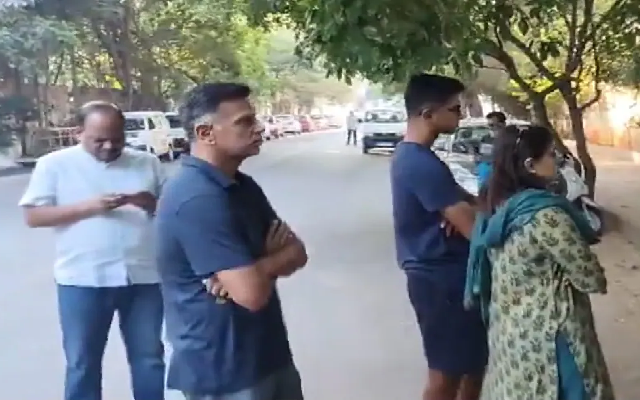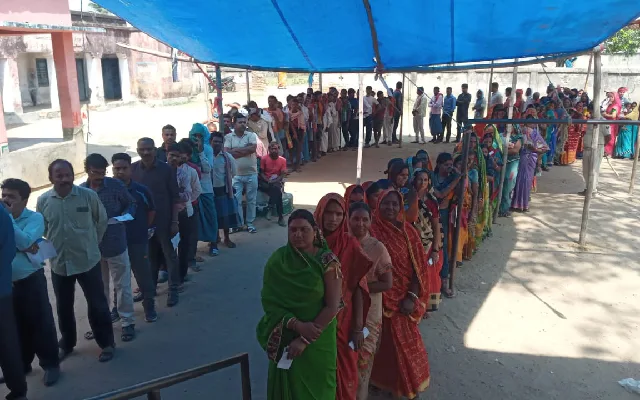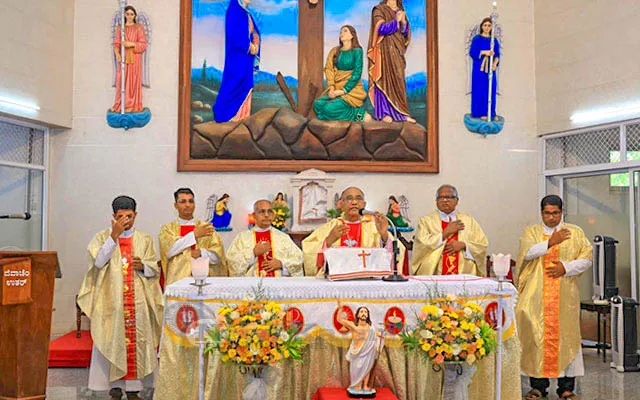
Team 101 reporters profile an ambitious initiative by College students who have taken it upon themselves to educate, persuade and assist local authorities and residents to imbibe and practice personal hygiene to serve the communit.
Sowjanya Pattankudi’s day went about like most girls her age; she would wake up, go to class, spend time with her friends, and get back home to her family. It all changed the day she took a walk near her village and saw a sight that most brush aside as a commonality in India – people crossing the road to avoid the sight and smell of open defecation.
Open defecation is a common sight in rural India. While the common reflex is to turn, avoid and walk away, Sowjanya and a team of young women from Chikodi taluk in Belagavi district, Karnataka, responded in a far more productive way. They envisaged completely eradicating open defecation from their taluk and turning every village in Chikodi, into a model one.
This ambitious group took an oath to uproot this praxis from their taluk by constructing toilets and educating villagers about the importance of hygiene. In 2014, the drive was spearheaded by Sowjanya Pattankudi, Deepika Lokare and Deepali Bhosale, young students from AA Patil College of Arts and Commerce for Women, Chikodi, and was supported by NGO Deshpande Foundation’s LEAD Programme. The programme aimed to foster leadership, innovation and forward thinking in students by motivating students to work for a social cause.
Four villages were identified initially – Jainapur, Borgal, Hirekudi and Umrani – to execute their plans. The first steps of the process included organizing rallies, conducting door-to-door surveys and carrying out awareness programmes across these villages.
Sowjanya, recalling her experience of working on the project, said that a group of 30 young women from their college came together for this social mission. To carry out the door-to-door surveys, they split into several groups to cover maximum areas in each village. The surveys spanned across several weeks, with the girls working after college hours, or over the weekends and vacations.
The surveys aimed to find each village’s population, number of toilets currently available and yet to be constructed, budget required, create awareness about government subsidies, understand availability of space for further construction, and observe the various reasons behind residents’ reluctance to construct washrooms.
What the girls did not anticipate was the severe pushback from the villagers. Their resistance comes from generations of deep-seeded superstitions and irrational thoughts, which served as a major obstacle in implementation of the project. Some of their disconnected justifications to prevent construction of toilets included fear of upsetting deities, wastage of water supply, dirtying of house perimeter and the most common one, since their ancestors made do without toilets, there would be no present requirement as well.
“The most difficult task was to convince villagers to construct and use toilets. Many senior citizens of the villagers told us to stop this rally, calling it a waste of time and that it was against customs,” Sowjanya said. It was bewildering to hear stories where women in these villages would control the excretion process throughout the day, and wait till dusk to go into the open fields. “They are not aware of the infections and diseases that can be caused by this practice,” she said.
Gajabar Mulla, an agriculturist from Umrani said, “We know that open defecation is a bad practice, but due to our poor economic condition, we could not construct toilets and had to wait for dusk or before dawn to attend nature’s call.” He added that while men somehow managed, it was the women who suffered from infections and other diseases – “Even when we would visit doctor, they would ask us so many questions which we could not answer.”
Laxmi Gaju Dannavar, a garment worker and resident of Umrani, shared that she used to defecate only after dark, and would have to flee on some occasions due to fear of snakes and insects. “Due to my shy nature, I would find it uncomfortable to talk to my husband and others in the family. I used to hold it in for long hours and never revealed the problems I faced because there were no toilets nearby,” she added.
Once the seniors graduated, they handed over reins of the project to the next batches, to ensure continuance of their social cause.
Vimala Kadam, a final year BA student took up the project immediately after joining first year. What drew her towards the cause was the plight of senior citizens, who had to wait till dusk, or rise early morning before the sun just to attend nature’s call. The strong odour made it a common practice for passersby to avoid certain routes and lanes. “In some villages, it (open defecation) takes place near hospitals and temples. For this, I decided to continue this project which my seniors started in 2014,” Kadam explains.
By working with the Gram Panchayat and their developmental officers, the Zilla Panchayat, and their college’s Lead Programme coordinator Jayashree Nagaraj, the young women successfully carried out surveys, convinced villagers about the importance of constructing and using toilets, and managed to complete construction of 1,775 toilets across four villages. Under government schemes, after an individual completes construction work with money from their own pockets, they can claim the majority expense back by providing valid ID proof – the government subsidy pays between Rs 12,000 – Rs 15,000, while the remaining amount of about Rs 6000 is paid by the owners. Moreover, about 60 houses collaborated with a private company and got their toilets constructed for the amount of approximately Rs 17,000, down from the original cost of Rs 25,000.
Discussing the project, Professor Jayashree Nagaraj says that convincing villagers were a tedious task. As an alternate method, in one village, residents were told that their ration cards would be discontinued if they refused to construct and use toilets. In another, the group raised awareness about unknown government schemes like free construction of cattle sheds as incentives to motivate villagers to allow construction and use of toilets. “Often, villagers scolded our students badly and warned them not to enter their village.”
Village authorities acknowledge the effort and and dedication put in by these young women.
Shivanand A Desai, Ex-Panchayat Development Officer of Jainapur, is all praises for this girl gang – “All these girls made our job easy by taking several initiatives. In Jainapur itself, 250 toilets were built in a short span of time because of these girls. They suggested community toilets in slum areas, where there is limited space for separate toilets in individual houses. The girls were also able to educate villagers about subsidies provided by the government under Swachh Bharat Mission.”
Santosh Kattimani, Umrani’s panchayat development officer, says, “Because of their determination and patience, we could quickly build a good number of toilets.” Before the project’s inception, villagers remained disinterested and ignorant about the ill-effects of open defecation on health, and it would be further difficult to interact with women about the issue, Kattimani explains – “The girls explained it very well to the villagers, especially to women, on how badly it (open defecation) can cause various diseases like diarrhoea, worm infections in the intestine, typhoid, cholera, hepatitis and others.”
Recognizing Vimala Kadam’s effort, the taluk Panchayat and local election commission have made her an ambassador for the mission. She has been assigning 16 villages to help eradicate open defecation.
In 2014, around 250 toilets were constructed in Jainapur, 200 in Borgal in the year 2015, Hirekudi had 50 in 2016, and about 825 between 2017-18 in Umrani.
(101Reporters.com is a pan-India network of grassroots reporters)

















